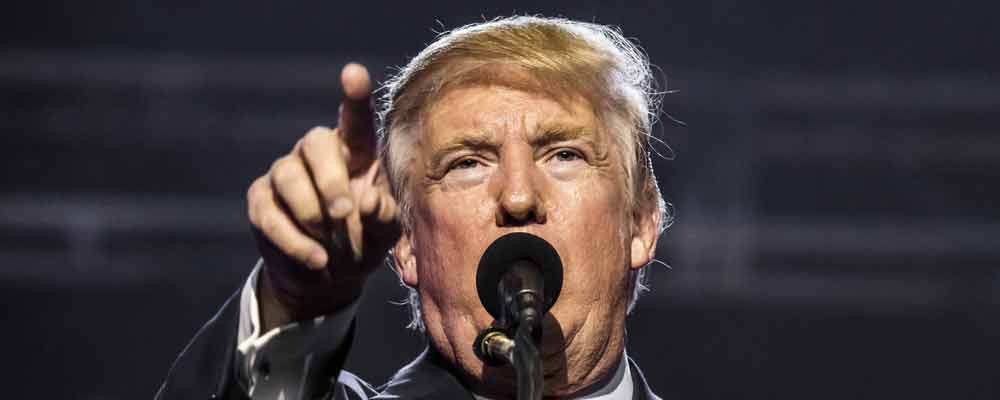I’m a stickler for going to the right guys to get the job done.
I go to the dentist to get my teeth cleaned.
When my kids are sick, I rush them to a qualified doctor.
If I want my taxes done, I go to an accountant.
I think you get the point.
They’re professionals for a reason, and they do that job every day.
I wouldn’t take my kids to the insurance rep down the street asking him to diagnose their illness.
It doesn’t make sense.
And when it comes to arguably the second most important position in our economy — the Federal Reserve chair — you would think it would be a good idea to stick to that theme.
Almost all Fed chairs have been economists.
But the next named chairman of the Fed isn’t an economist — and that could be disastrous for our economy.
A Curveball for Policy
Last week, President Donald Trump nominated Jerome Powell as the next Fed chairman.
He would replace Janet Yellen, who has been head of the Fed since 2014.
Powell was appointed to the board of the Fed in 2012 by President Barack Obama, so this isn’t a political issue with the appointment, nor should it be.
The Fed is supposed to be an independent institution, operating outside of the political parties in the government and focusing on its dual mandate: maximum employment and stable prices.
Many Fed watchers see this nomination as continuing the road map Yellen laid out, meaning that we should see gradual and planned rate increases going forward.
But Powell could also be a curveball for policy.
He wouldn’t be your typical Fed chair — his background isn’t in economics.
In fact, he would be the first noneconomist Fed chair since the 1970s — and that may be a history lesson we want to avoid repeating, as I’ll explain in a moment.
Trump Has Named His Man
Powell’s background is in law.
He has a bachelor’s degree in politics, as well as a law degree. He has worked at investment banks, and as undersecretary for finance in the Treasury Department. And his most recent stint was as a voting member of the Federal Reserve since 2012.
For comparison, Yellen was a professor in macroeconomics, chair of the Council of Economic Advisers, president of the Federal Reserve Bank of San Francisco and vice chair of the Federal Reserve Board.
You can see that Yellen has a background in studying the ways the Fed impacts the economy over her entire career.
Powell has been on the Fed board since 2012 and hasn’t once voted against the majority position. This may mean he has just followed the herd, so we haven’t seen how he really thinks yet.
Keep in mind, Yellen did nothing to lose her job as Fed chair and now will have served the shortest time as Fed chair since the last noneconomist, who served in 1978.
This could be a sour spot for the Trump presidency because Fed policy can be a scapegoat for economic turmoil, blaming low rates and easy-money policies. But now that Trump has named his man for the spot, the blame will shift back to Trump instead of the Fed.
But maybe that is Trump’s goal with the move — a little more control over the Fed through Powell.
Periods of Stagflation
So, who was the last noneconomist to run the Fed?
Well, many would put him in the history books as the “least respected chairman in the Fed’s history.”
Here’s what happened.
In 1978, G. William Miller, the last noneconomist to run the Fed, took control of the central bank amidst an economy that had high inflation (or rapidly rising prices) in part due to rising oil prices.
He believed this inflation would self-correct because oil prices fluctuate and continued to maintain an easy-money policy.
The effects sent the U.S. dollar plunging as inflation continued.
It marks one of the few historical periods of stagflation, which means the economy was stagnant, yet inflation, or prices, was rising rapidly.
After just one year, he was out as the Fed chair. But his successor, Paul Volcker, had to use abrupt policy measures to tame inflation, and this resulted in a recession from 1980 to 1982.
So the last noneconomist to run the Fed largely takes the blame for running the economy into a recession.
We are in quite different times now, with an economy that is recovering and inflation that has remained stuck below the Fed’s mandate of 2%.
But things can change.
The question is, will Powell know when to adjust monetary policy? Or will he be pressured to let policy remain easy for longer to pursue a stronger economy?
Let’s hope he relies on the many economists who are members of the Federal Reserve. They should help him keep the Fed’s gradual and measured management style and avoid stagflation.
Regards,

Chad Shoop, CMT
Editor, Automatic Profits Alert









